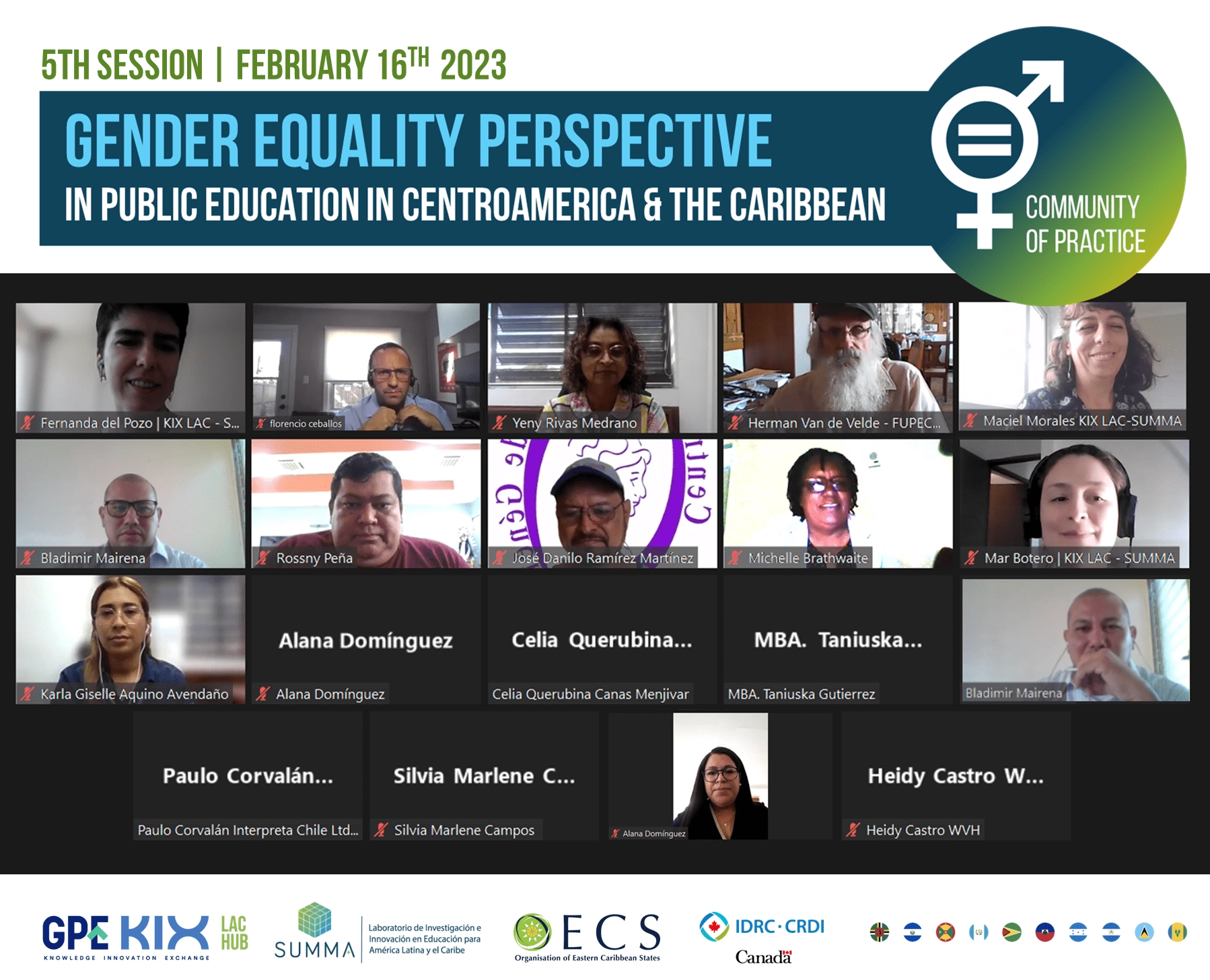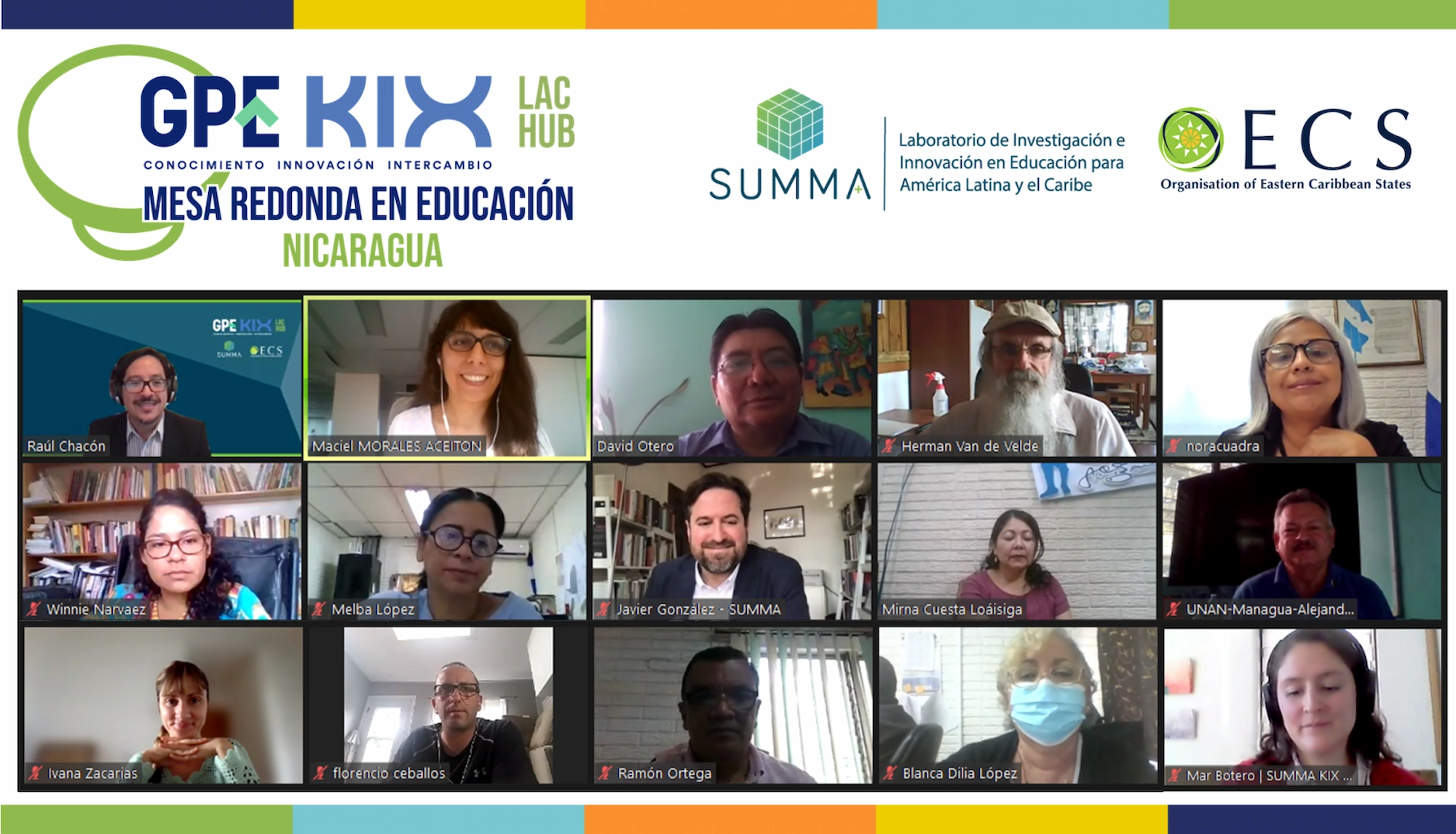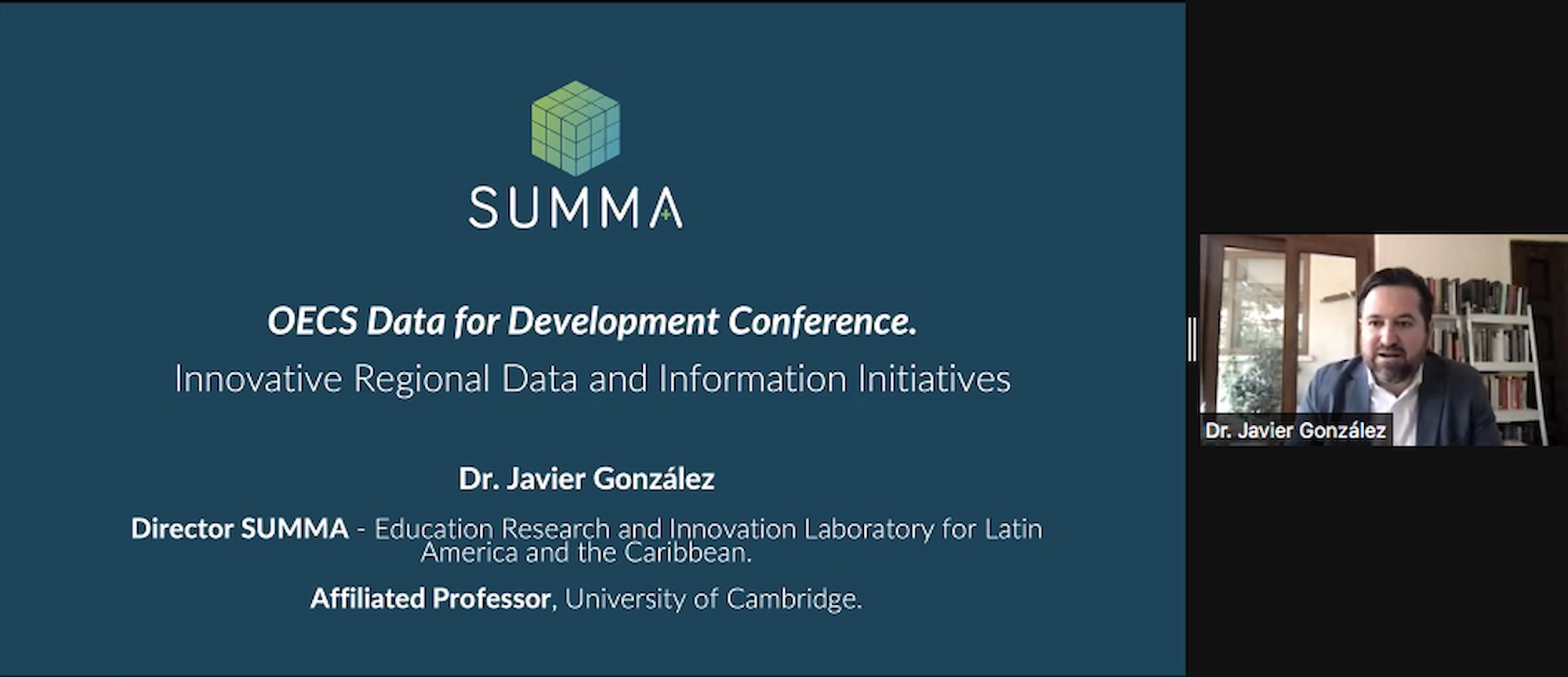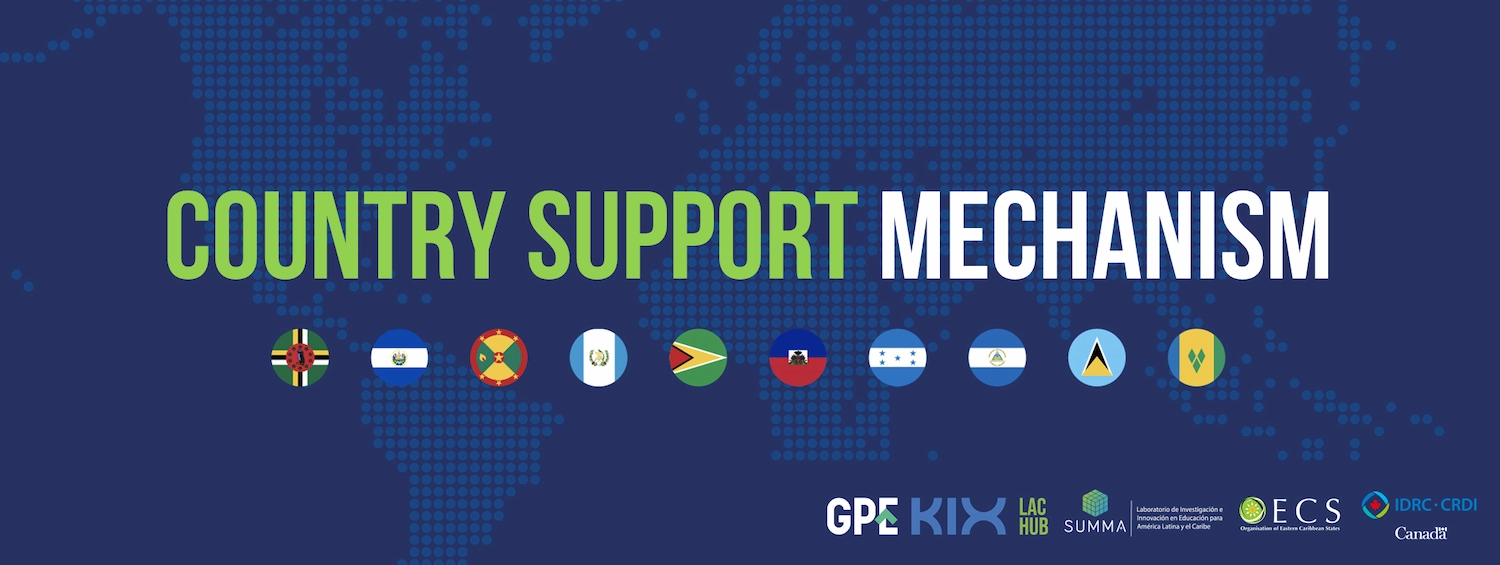Fifth session of the KIX LAC Community of Practice “Gender and Education”
16 de February de 2023

Share
➡️ Watch the 5th session
The Community of Practice on Gender and Education of KIX LAC, held its last session of this first cycle, where a recap of the meetings was made and Bladimir Mairena from Fe y Alegría Nicaragua was invited to speak about the integration of the gender perspective in the Peer Tutoring methodology.
Maciel Morales Aceitón, Fernanda del Pozo, KIX LAC researchers, and Yeni Rivas, Gender Manager of the Ministry of Education of El Salvador and community organizers, welcomed the participants to the closing of the cycle and reviewed the topics addressed during the sessions.
The first session welcomed the community and focused on understanding and defining basic concepts about the meaning of gender equality. During the second meeting, the community worked on the design and implementation of initiatives with a gender perspective in the KIX LAC countries, emphasizing questions such as: what do we understand by gender violence in education systems? and in what areas do we observe violence and inequalities? Subsequently, the third meeting focused on educational policies for teacher training with a gender perspective, where participants were able to answer questions about the progress or setbacks they observe in their countries in terms of teacher training policies with a gender perspective and the types of articulations that are generated. Finally, during the fourth session, participants worked on the development of pedagogies with an equality perspective, observing the areas where sexism is still reproduced in education systems and contributing ideas on how to change this situation from the teaching role.
Florencio Ceballos, IDRC senior program, celebrated the work of the community of practice, assuring that what started as an experiment turned out to be a very successful work that allowed KIX to understand other ways of working with a group of people interested in a specific topic, making this experience to be replicated even by other hubs in Africa and Asia. She also emphasized the importance for GPE and IDRC of building knowledge on the gender perspective based on the experiences and specificities of each of the countries, because “we understand that the realities are different, the possibilities of public policies are also different and the ways of incorporating this knowledge with impact vary greatly from one country to another, so it seemed better to listen to the participants themselves and let them share knowledge, experiences and learn together, rather than providing vertical training on gender perspective training”.
Next, Bladimir Mairena of Fe y Alegría Nicaragua, presented the guide “Integration of the gender perspective in the Peer Tutoring methodology”, which is based on the concept that talking about gender pedagogy implies a reflection of the educational practice that allows the deconstruction of knowledge, attitudes and skills that generate inequalities, and the reproduction of the cultural patterns of patriarchy that seeks to de-formalize situations of violence and allowing the free expression of people.
“Our work consists of making students more aware of the inequalities that exist in their environment and that they can reflect and question the power relations between men and women and move from the paradigm of competition to one of collaboration,” said Mairena.
Finally, the organizers thanked the active participation of the members of the community and highlighted the richness of having a great diversity of countries talking about gender diversity, their realities and common problems, as this is the only way to advance in the construction of new policies and ways of educating future generations.





















































































































